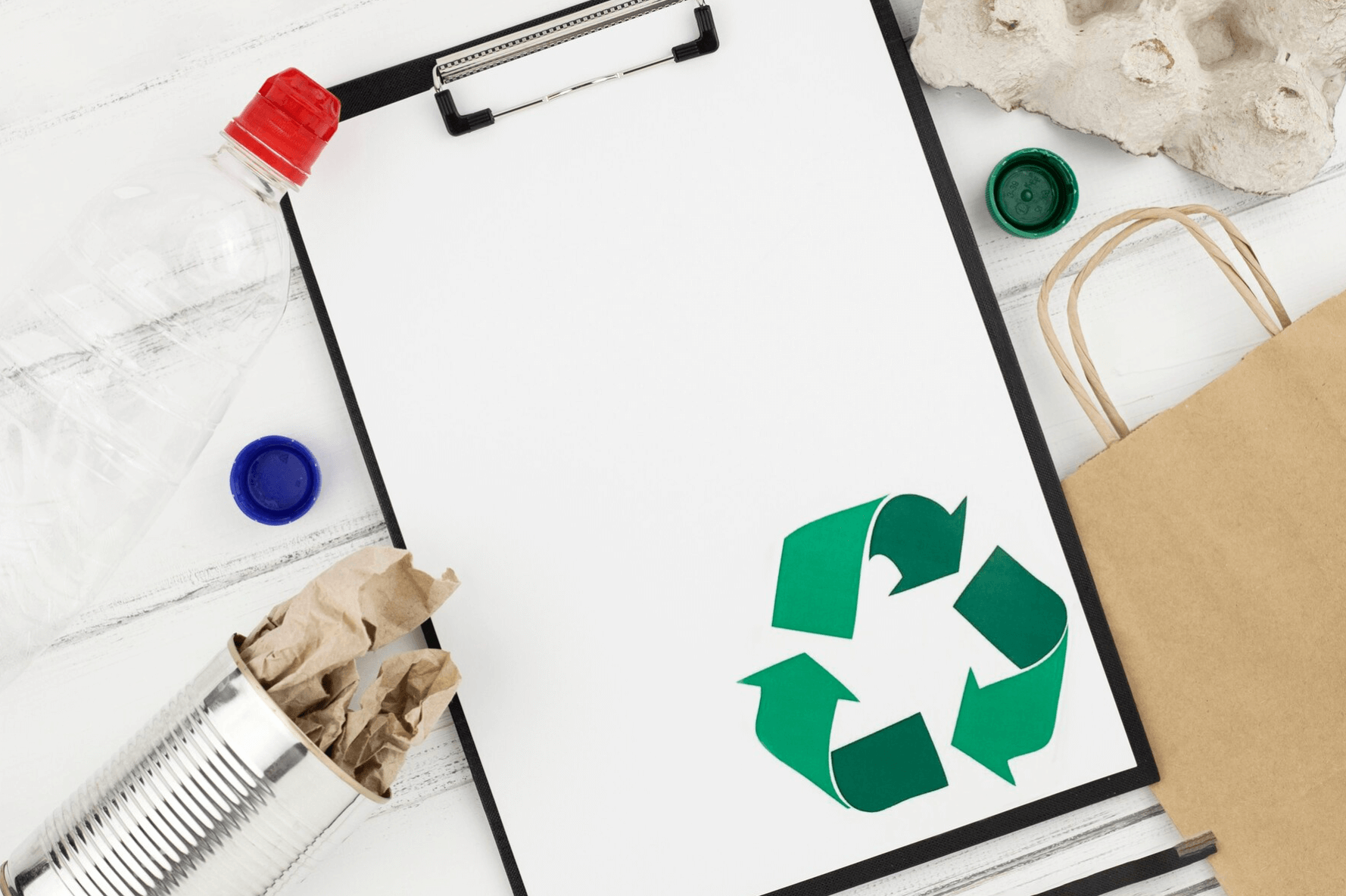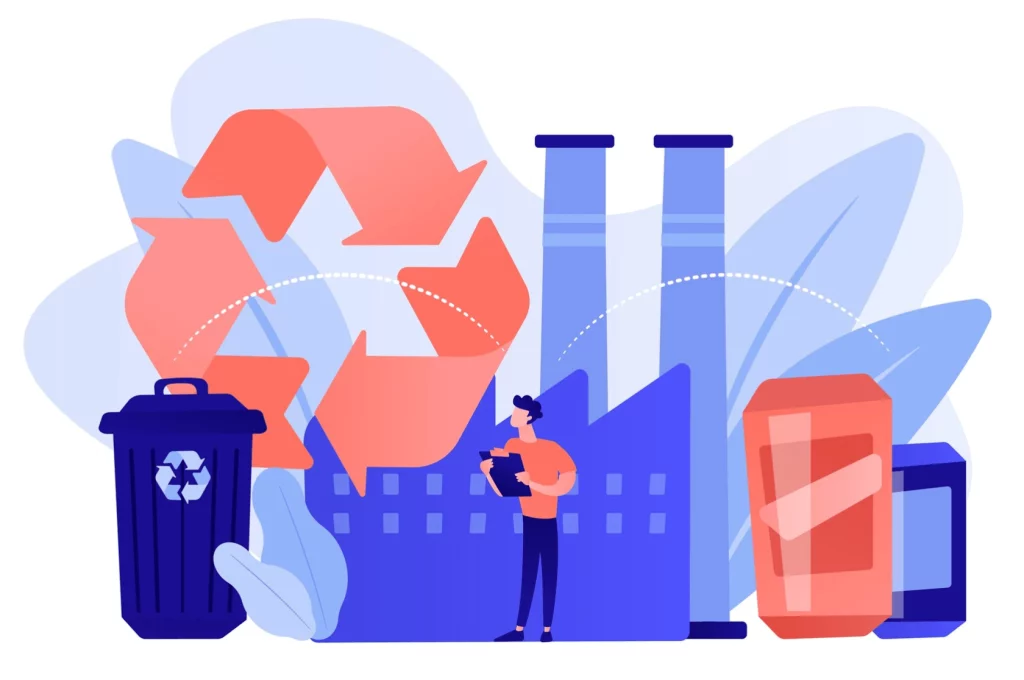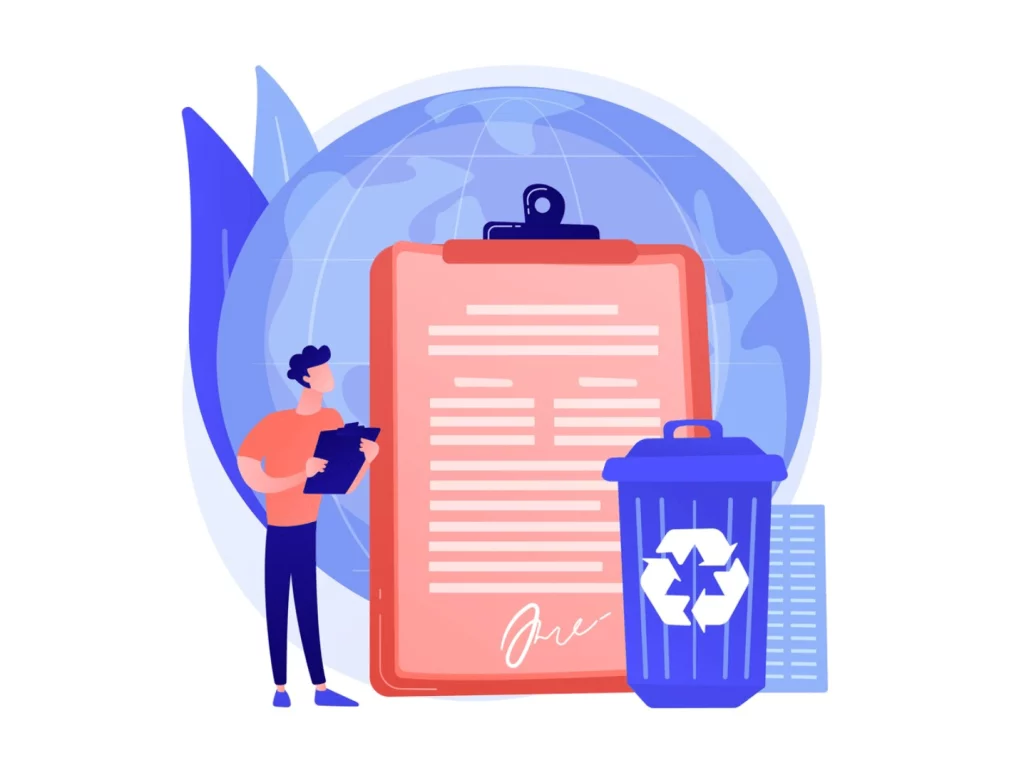Regulation of Bio-waste: What You Need to Know

Bio-waste, at the heart of environmental concerns, is garnering increasing attention due to the strict regulations surrounding it. If your company does not comply with these regulations, it may face legal issues.
- What is Bio-waste?
- Bio-waste Regulations: Key Laws and Texts
- Obligations for Businesses
- Future Perspectives on Bio-waste Regulations
To better understand the regulations surrounding bio-waste, we offer some context with the definition of bio-waste.
What is Bio-waste?
Bio-waste, also known as organic waste, refers to biologically derived residues from plant or animal life. These waste materials include:
- Food waste
- Garden waste (leaves, branches, etc.)
- Animal-origin waste (meal remnants, bones, etc.)
- Agricultural waste (manure)
- Restaurant waste
Now that the context is set, let’s discuss the laws governing bio-waste.

Bio-waste Regulations: Key Laws and Texts
The effective implementation of biodegradable waste management relies on a comprehensive understanding of the laws and regulatory texts governing this practice. Bio-waste regulations encompass various legal standards.
- The Law on Energy Transition and Green Growth (LTECV)
Promulgated in 2015, LTECV sets ambitious goals for reducing waste sent to landfills, emphasizing the importance of sustainable practices. Companies, in their management of bio-waste, must align their strategies with this legislation aimed at ecological transition.
- Decree No. 2016-288 Regarding Source Separation of Biodegradable Waste
In addition to LTECV, this decree establishes the procedures for source separation of biodegradable waste. Companies subject to this requirement must implement appropriate measures to comply, thereby contributing to reducing organic waste at its source.
- ISO Standards for Waste Management
ISO standards, including ISO 14001 dedicated to environmental management, provide a structured framework for integrating bio-waste regulations. These international standards guide companies in establishing consistent and compliant environmental management systems.
- National Waste Prevention Plan (PNPD)
PNPD defines major directions for waste prevention and management. Companies can draw recommendations from this plan to optimize their processes, minimize waste at the source, and contribute to environmental preservation.
Legal Obligations for Businesses
Bio-waste regulations are a necessary component of environmental management for businesses. In France, they are part of a strict legal framework aimed at promoting responsible and sustainable practices.
-
- Source Separation: The first step mandated by bio-waste regulations involves source separation. Companies are required to implement effective measures allowing for the separation of food waste from other waste. This measure aims to facilitate the valorization process.
- Selective Collection: In compliance with regulations, entities must organize selective collection of bio-waste. This involves the use of dedicated bins and specific collection routes to ensure optimal management of organic waste.
- Waste Traceability: Regulations also demand rigorous traceability of bio-waste. Companies must be able to document the journey of waste from production to final treatment. This contributes to enhancing transparency and efficiency in the waste management process.
- Compliance with Environmental Standards: Facilities for bio-waste treatment must strictly adhere to established environmental standards. This includes parameters related to emissions, water management, and soil protection.
Optimize your waste recycling routes to meet the new regulations!
Our solution helps our clients comply with these new requirements efficiently and cost-effectively.
Future Perspectives on Bio-waste Regulations
Anticipated Legislative Changes
It is worth noting that current standards already impose strict obligations regarding bio-waste management. However, authorities are working to strengthen these rules in response to growing environmental challenges. Companies must prepare for these developments, and expert guidance will be necessary to navigate this new context.
Significant changes are expected in terms of bio-waste recycling quotas. Companies will likely need to intensify their efforts to adapt to these more demanding objectives.
Another trend to anticipate is the increasing emphasis on bio-waste traceability. Future regulations may require more rigorous documentation, focusing on transparency. Companies will need to invest in advanced tracking systems to meet these requirements and maintain their compliance.
Awareness of environmental practices will also be a key element. Companies will need to educate their teams and promote environmentally friendly behaviors. Tailored training solutions will be necessary to support this cultural transition.

Technological Innovations and Initiatives for Better Bio-waste Management
Bio-waste management is evolving rapidly with the emergence of technological innovations and sustainability-focused initiatives. These advances play a role in helping businesses comply with the strict regulations surrounding responsible bio-waste management.
-
-
- Precise Tracking through Emerging Technologies
-
Technological advancements now offer precise tracking solutions for bio-waste, enabling effective management from collection to valorization. Modern traceability tools ensure full compliance with regulatory standards, enhancing transparency in bio-waste management processes.
-
-
- Process Optimization through Artificial Intelligence
-
Artificial intelligence (AI) is becoming a major asset in optimizing bio-waste-related processes. Intelligent algorithms analyze real-time data, anticipate collection needs, and minimize waste. These technological advancements allow companies to comply with regulations while reducing their environmental impact.
-
-
- Innovative Valorization of Bio-waste
-
Various innovative initiatives focus on valorizing bio-waste. Emerging solutions transform this waste into energy, compost, or reusable raw materials. This approach aligns with sustainability, offering eco-friendly alternatives to traditional waste disposal.
-
-
- Awareness and Ongoing Training
-
Awareness and ongoing training play an essential role in the transition toward more responsible bio-waste management. Educational programs aim to inform stakeholders about environmental issues, current regulations, and available innovative solutions, fostering collective adherence to environmentally friendly practices.
Bio-waste management is highly important in the recycling sector, and early preparation is essential to remain competitive and comply with legal standards. Our waste recycling route optimization solution is specifically designed to help waste recycling companies meet this challenge.
